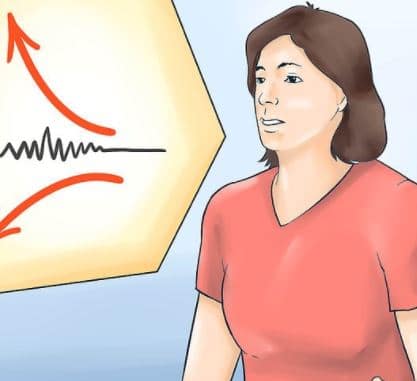A day scarcely passes in an audiology practice without a patient fretting that someone they know and like is speaking so softly nowadays that they have difficulty hearing them even with hearing aids.
After checking the patient’s hearing aids, The Audiologist typically suggests commonsense strategies:
- Look at the person when they’re speaking.
- Ask them to look at you, too.
- Sit next to the person when dining.
- Lightly touch their arm to get them to turn toward you when speaking in a group.
One Trick Buttons
Sometimes a manual program is added to the patient’s hearing aids, not so much for a listening situation as for a particular speaker. Thus, one patient has a “Bob” button, another has a “Dr Jones” button, another has a button for his wife, etc. The Audiologist’s patients press the magic button when Bob, Dr Jones, the spouse, etc. starts talking. This only work if Bob, Dr. Jones, the spouse… is the only one in the room talking. When others start speaking in normal or slightly loud voices, as in the communal dining room, the “Bob” button makes everything but Bob too loud.
As in the dining room example, such one-trick-button strategies work OK… until they don’t. Eventually patients tell The Audiologist that the soft spoken person’s voice has become so challenging that “no one” can hear him/her. They uniformly report a new strategy — they avoid conversation and socialization with the soft talker. Rarely do they report that the problem talker has taken steps to talk louder or seek help.
This is a sad situation, a common one, and a frustrating one.
Not All Voices Age
The Audiologist was pondering this frustrating, sad problem the other day when an 85-year-old patient called the office. He didn’t identify himself at first; the Audiologist thought it was a young man in his 20’s on the phone. She didn’t recognize her patient even though he was well known to the practice.
Once the patient identified himself, The Audiologist got to wondering why this elderly man’s voice was so “young” compared to the voices of other older people and patients of the practice. That got The Audiologist thinking about the criteria we use in society to subconsciously class a voice as “young” versus “old.” It’s not just loudness, though that is part of it.
What Makes a Voice Sound Young or Old?
There is a cultural aspect to identifying a young voice, but we’ll save that for a later post. Let’s just say that young girls are enjoying a fling with “vocal fry” at the moment and they are leading the pack in that trend.
Age-induced changes in voicing are called presbyphonia, Even though 12% of seniors have some form of voice dysfunction, it’s a good idea to rule-out medical problems before chalking voice changes up to age. The American Academy of Otolaryngology website provides the following list of voice changes associated with aging:
- Higher pitch voice in men
- Lower pitch voice in women
- Reduced volume and projection of the voice (or “thin” voice)
- Reduced vocal endurance
- Difficulty being heard in noisy situations
- Tremor or shakiness in the voice
Back to the young-voiced 85 year old patient. His voice has no tremor, it’s loud and strong enough, and he doesn’t run out of breath at the end of a sentence. His pitch may be a bit higher than it was 20 years ago, but that makes him sound boyish so long as his utterances don’t have the other problems.
So, The Audiologist has a pretty good idea of How she coded the voice as “young” instead of “old.”
But that leaves the question of Why is his voice staying “young?” Tune in for the next post for an answer to that.
feature image from wikihow






